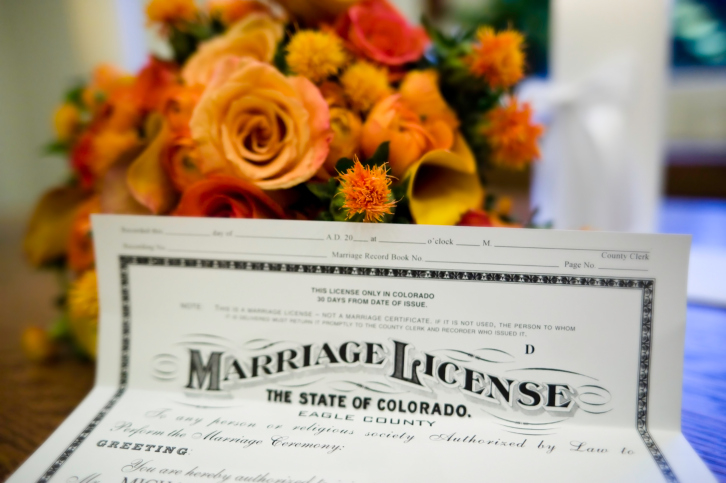 In many states, provisions were made during the Vietnam War that allowed soldiers and their beloveds to marry when one of them could not be physically present. Over forty years later, some Colorado lawmakers are seeking to rein in a privilege they believe could pose a national security risk today.
In many states, provisions were made during the Vietnam War that allowed soldiers and their beloveds to marry when one of them could not be physically present. Over forty years later, some Colorado lawmakers are seeking to rein in a privilege they believe could pose a national security risk today.
How It Works
While California, Montana and Texas offer proxy marriage, the opportunity is available for military couples only. Currently, Colorado has no such restriction. In order for any couple to become legally married when one of the parties is absent from the state, the other one must visit the county clerks office with the proper identification for both people, such as passports and birth certificates. A two-page notarized affidavit stating the fact of the absence is required. A representative of the couple's choosing takes the physical place of the absentee. Lastly, an officiant, or the person performing the ceremony, must be "satisfied" that the absent person is indeed unable to be there and has consented to the marriage. With these things in place, the wedding may proceed.
Proposed Changes
Colorado lawmakers now see this openly accessible road to marriage as an opportunity for abuse. The authors of the changes to the law fear that the current situation leaves too much room for human trafficking and immigration fraud. They are pushing legislation that would restrict proxy weddings to military personnel and government contractors. The Colorado House passed the bill unanimously, and it has passed through the first stages of Senate committees. Although there have not been any examples of actual wrongdoing or unlawful use of the proxy provision, some officials feel a need to act swiftly to emend a law they feel compromises the security of Coloradans and U.S. citizens in general. New restrictions include:
- One or both parties must be a member of the United States military or be a government contractor.
- At least one person must be a Colorado resident.
- At least one participant must appear in person to apply for a marriage license.
- Parties must be 18 years of age or older.
Opposition to Change
Sam Geller is the head of S&B Inc., a company based in Pennsylvania that helps people arrange and hold proxy weddings. Geller disagrees with the proposed changes to Colorado's law. Unlike the lawmakers that seek to modify the current situation, Geller sees little reason to be suspicious of people's motives. He supports proxy marriage as a benefit to people who may be in difficult situations. The 700-plus marriages that Geller has helped to bring about in the past 15 years include international couples, prison inmates and military personnel. He believes the provision has proved useful and even life saving for many couples and meets a need that has extended well beyond its origins as a way for Vietnam soldiers to wed their stateside intendeds.
No Guarantee
Contrary to what many may assume, couples who get married by proxy are not automatically eligible for immigration benefits. Nationals of foreign countries who marry Unites States citizens are still required to go through legal channels to secure residency. Federal immigration law does not typically recognize proxy marriages as a qualifying step toward legal residency or citizenship.
While Colorado county clerks perform between 50 and 60 proxy services annually, the marriages are not tracked for information that would indicate any trend toward why they may have been requested. Despite the lack of documentation as to the reasons why people seek proxy unions, notable examples include people who have been or remain separated because one of them is unable to leave a foreign country that is at war or otherwise distressed. There are instances in which people have traveled specifically to Colorado to take advantage of its generous marriage proxy law. The new restrictions are likely to put an end to such pilgrimages.
Add Your Comment